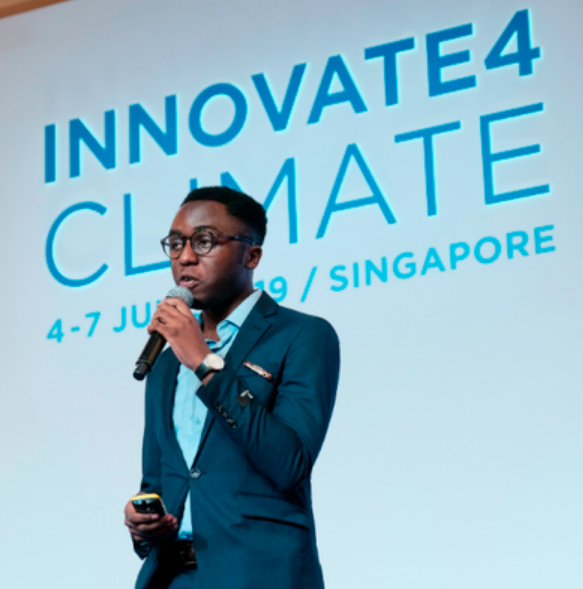- EmpowerAfrica
- ,
Did you know that over 525 million people used the internet in Africa in 2019? If current growth trends continue, almost 75% of Africans are expected to come online by 2030.
The Empower Africa Business Platform is Now Live !!!
E-Waste Management in East Africa: An Interview with Wastezon Founder Ghislain Irakoze

By: Leah Ngari
Have you ever wondered where your electronic waste goes? Where is your old TV set, the laptop battery that you replaced recently and had to throw away, the various cell phones you owned over the years and discarded when a newer model came out? What happens to the numerous electronics that remain unbought on the shelves as newer, better ones are released daily? Where do all these devices end up?
In 2019 alone, a record of 53.6 million tonnes of e-waste was reported, but only 17.4% was officially collected and recycled. That means that most of our old electronic devices are lying around in a landfill somewhere. Neglecting proper e-waste disposal doesn’t just pose a risk to human and environmental health. It also represents a wasted business opportunity.
We recently caught up with Ghislain Irakoze, a 20-year-old university student at the African Leadership University in Kigali, Rwanda and founder of Wastezon, a social enterprise in the e-waste management field, to find out more about this industry.
Ghislain explains that the precious metals that lie around in scrapyards and garbage heaps could be recycled to create valuable pieces. Improper electronics disposal means that billions worth of precious metals like copper and platinum are discarded or burned even though the supply of these precious metals is not infinite.
“The world is undergoing a resource extinction,” he declares. The possible unavailability of these metals in the future creates an urgency to reuse or repurpose the metals that still exist today.
The hazardous chemicals in some of these electronic items also can’t be ignored. For instance, lead in computer and television screens and mercury in older generation water heaters pose a significant risk to people’s health when released into the air. Once released into the air, toxins from e-waste contribute to global warming. They contain greenhouse gases that deplete the ozone layer, creating even more health risks to humans and wildlife across the globe. The chemicals also destroy the land they are in when they mix with the soils, which happens when old electronic devices are dumped into landfills.
Ghislain wanted to make the world a better place. Seeing the damage caused by the haphazard disposal of electronic waste and perceiving the untapped business opportunity, Ghislain decided to start a business.
Ghislain founded Wastezon with a friend with the goal of creating a greener and more sustainable world. They decided to build a centralized platform that could connect households discarding their broken, unusable electronics with recycling companies that were spending considerable time, effort, and money to find raw materials for their products.
Wastezon’s app makes it easier for the recycling companies to trace, sort, and collect electronic waste. At the same time, households earn an income from disposing of items that they would throw away anyways. Users also get the satisfaction of reducing their carbon footprint and knowing that their electronic waste will be handled safely.
And in just two years of operation, Wastezon has been able to transact over 480 tonnes of electronic waste. “This is equivalent to 2600 metric tonnes of carbon emissions diverted,” Ghislain informs us proudly.
What started as an idea between friends has turned into an impactful social enterprise, creating employment for other young individuals in Rwanda and expanding beyond the country’s borders. Wastezon now provides electronic waste to certified recyclers in Kenya and Tanzania and is working on bringing the app to end-user households in these countries.
Ghislain’s vision of a waste-free world doesn’t end with electronic waste. Wastezon is already developing its next product, the Smart Bin, which will use the internet of things (IoT) to sort garbage automatically into biodegradable and non-biodegradable waste. According to Ghislain, this will allow Wastezon to quickly and efficiently recycle the organic waste produced by homes and institutions and turn it into compost and fertilizers. Schools, institutions, and even individuals in private homes will soon be able to use this new product, reducing their work of sorting waste.
At only 20 years old, Ghislain would like his story to motivate other young Africans to build businesses that solve pressing problems. As he tells us, “I hope this will inspire more entrepreneurs to get into waste management and that more people will get interested in sustainable living.”